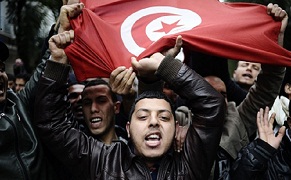DUBAI: The United Arab Emirates’ economic growth is expected to accelerate to up to 3.2 percent this year and no further major restructuring of Dubai debt is seen, the Gulf country’s economy minister said on Saturday.
The UAE economy is expected to lag its Gulf peers this year as banks in the world’s third-largest oil exporter remain reluctant to lend due to a $23.5 billion debt restructuring by conglomerate Dubai World.
"We have heard different numbers (about 2009 gross domestic product growth)," Economy Minister Sultan bin Saeed Al-Mansouri told a news conference.
"The good news is that it was positive 1.3 percent and we expect GDP growth for 2010 to be around 3 percent," he said.
Mansouri said UAE’s open economy was likely to be affected by the euro zone debt crisis but the impact was hard to quantify at the moment.
"I do not see any direct effects (of the euro zone crisis) right now, looking at banks’ exposures," he said after a presentation of the government’s 2009 economic report.
The OPEC member’s real GDP is seen growing by 2.0-3.2 percent, depending on oil prices, which are expected to move between $75 and 85 a barrel in 2010 and 2011, Mansouri said. "I feel very comfortable with oil at $80 (a barrel)," he said, adding that GDP growth was most likely to reach 2.5 percent this year, echoing his April remarks.
Benchmark U.S. crude futures fell to $73.97 a barrel on Friday, posting their worst monthly loss since December 2008. The ministry has been sticking to the 1.3 percent GDP growth estimate for 2009 in past months, while analysts saw contraction of 1.4 percent.
Analysts polled by Reuters expected the UAE economy to grow by 2.5 percent this year.
Asked whether he expected more big debt restructuring at government-linked conglomerate Dubai Holding, Mansouri said: "Indications are so far that it will not. I believe they will meet their requirements."
Dubai World, which rattled world markets in November, sealed a deal with its core lenders earlier this month, but it has yet to strike an agreement with remaining creditors.
Analysts expect Dubai Holding to be the next to restructure debt after the global crisis hit the property market. One of its units, DHCOG, has delayed release of 2009 results.
Annual inflation was expected to reach 1.1 percent by the end of this year and 2-2.5 percent in 2011 as the global recovery strengthens, a report by the National Bureau of Statistics showed on Saturday. It slowed to a nine-year low of 1.6 percent in 2009, from a record 12.3 percent in 2008.
The report said the UAE’s expansionary fiscal and monetary policies could create inflationary pressures as economic activity picks up and profitability rises mainly in the subdued real estate market, which may trigger new bubbles.
"The authorities must be careful in their exit strategies by ensuring that an appropriate dose of stimulus is given to the economy so that inflationary pressures are checked and excessive spending is restricted," the report said.
The global crisis slashed consumer price growth across the Gulf last year and the UAE and Qatar had months of deflation. UAE prices have risen in recent months to hit 0.8 percent inflation in April with analysts predicting 2.0 percent inflation in 2010.
In 2009, the oil sector contributed about 29 percent to GDP of the UAE, the second-largest Arab economy, the report said.
Household consumption, which accounted for 47 percent of total expenditure, grew 2.0 percent year-on-year, while government purchases and private fixed capital formation rose by 3.9 and 5.9 percent, respectively.
UAE net exports dropped 45 percent to show a trade surplus of $16 billion for 2009, the report showed.
Exports fell by 15.8 percent compared to 2008 as the hydrocarbon component plunged by 31.5 percent to $69.9 billion, while imports were down 11.9 percent. The Gulf country does not release trade data on a monthly basis.

